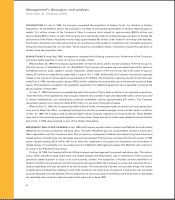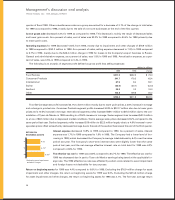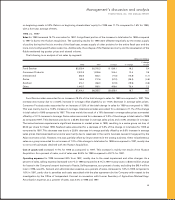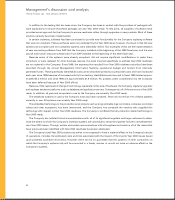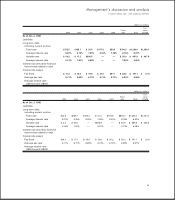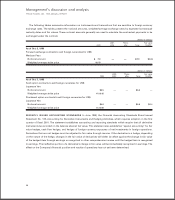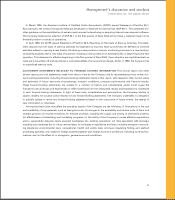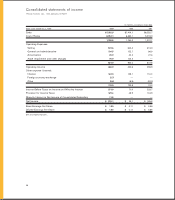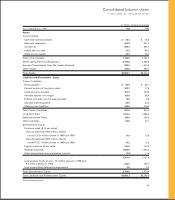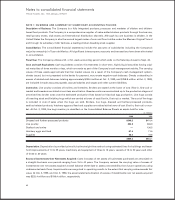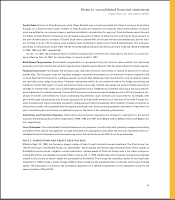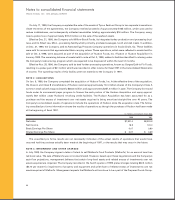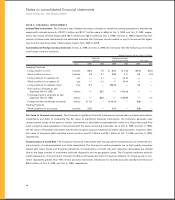Tyson Foods 1999 Annual Report Download - page 38
Download and view the complete annual report
Please find page 38 of the 1999 Tyson Foods annual report below. You can navigate through the pages in the report by either clicking on the pages listed below, or by using the keyword search tool below to find specific information within the annual report.
The following tables summarize information on instruments and transactions that are sensitive to foreign currency
exchange rates. The tables present the notional amounts, weighted-average exchange rates by expected (contractual)
maturity dates and fair values. These notional amounts generally are used to calculate the contractual payments to be
exchanged under the contract.
dollars in millions
2001- There- Fair value
2000 2004 after Total 10/2/99
As of Oct. 2, 1999
Forward exchange contracts to sell foreign currencies for US$
Mexican Peso
Notional amount $««««7.3 — — $7.3 $(0.6)
Weighted average strike price 10.13
dollars in millions
2000- There- Fair value
1999 2003 after Total 10/3/98
As of Oct. 3, 1998
Sold option contracts to sell foreign currencies for US$
Japanese Yen
Notional amount $6.5 — — $6.5 —
Weighted average strike price ¥109.48
Purchased option contracts to sell foreign currencies for US$
Japanese Yen
Notional amount $5.6 — — $5.6 $0.4
Weighted average strike price ¥126.69
RECENTLY ISSUED ACCOUNTING STANDARDS In June 1998, the Financial Accounting Standards Board issued
Statement No. 133, Accounting for Derivative Instruments and Hedging Activities, which requires adoption in the first
quarter of fiscal 2001. The statement establishes accounting and reporting standards which require that all derivative
instruments be recorded on the balance sheet at fair value. This statement also establishes “special accounting” for fair
value hedges, cash flow hedges, and hedges of foreign currency exposures of net investments in foreign operations.
Derivatives that are not hedges must be adjusted to fair value through income. If the derivative is a hedge, depending
on the nature of the hedge, changes in the fair value of derivatives will either be offset against the change in fair value
of the hedged item through earnings or recognized in other comprehensive income until the hedged item is recognized
in earnings. The ineffective portion of a derivative’s change in fair value will be immediately recognized in earnings. The
effect on the Company’s financial position and results of operations has not yet been determined.
Management’s discussion and analysis
TYSON FOODS, INC. 1999 ANNUAL REPORT
36


